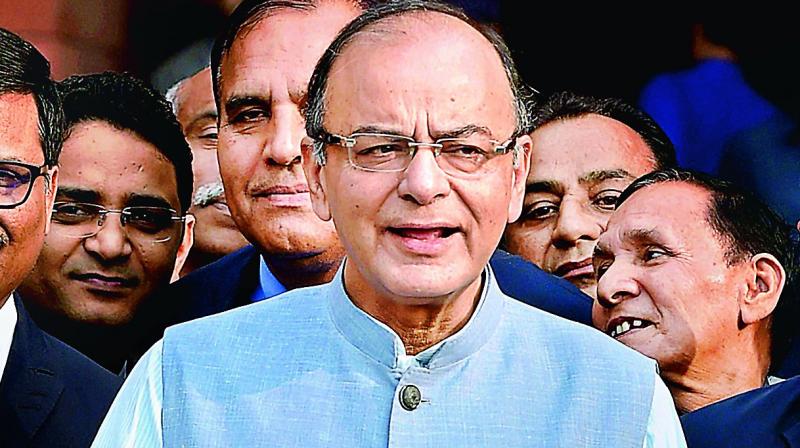At home in court, Parliament, and the social circuit

For a politician, Arun Jaitley, who passed away seven minutes past noon on Saturday in New Delhi due to medical complications, was informal, even nonchalant, chatty and humorous, relaxed. Generally, politicians take themselves seriously and others also seriously. And he loved to chat. Not many politicians are comfortable doing it. It could be because Jaitley still relished the university canteen atmosphere. He was India’s metropolitan politician of his generation. It is for this reason that he was a misfit in Indian politics where provincial rootedness was the key to success. Politicians from Mumbai, Kolkata, Chennai, Bengaluru and Hyderabad should be metropolitan but they are not because they shed their urbanity before taking to politics and win elections. That Jaitley did not win a popular election turns out to be a blessing in disguise. He did not have to shed his city mannerism, easy bonhomie to survive in the political arena. This could be seen when he would come back from the cross-examination of the feisty Ram Jethmalani in the defamation case that he had filed against Delhi Chief Minister Arvind Kejriwal, unflustered. And he had a word of praise for Jethmalani’s prosecutorial skills.
The BJP needed a politician like him, the urban, urbane face, the man who would talk smoothly and not be carried away by ideological rage, which is generally the case with BJP leaders. He was a right-wing politician alright, something that India was always in need of, and there have always been many in every party and every era. Jaitley was the right-wing politician along with many others of his generation in the party but with this difference that his right-wing credentials did not antagonise or intimidate people from other schools of political belief. This was both an advantage and disadvantage. While it gave him unprecedented opportunity in the nation’s capital to represent the party, it prevented him from becoming the essential party man who knew the cadres and the ins and outs of provincial politics though he did gain much experience while he was in charge of UP and Karnataka into local politics. He kept himself above the fray even in Delhi politics, including that of his party. Like a good lawyer with a sharp eye, he could grasp the treacherous nuances of the social and political landscape. His professional standing as a lawyer kept him above the fray. He was not the professional politician who had to survive on his politics. He had a life other than politics and that was a great help. He was a loner in the party to whom everyone turned as and when the need arose, but he was not the insider. Jaitley was in many ways a stranger in BJP, the outsider/insider.
During his stint in the Vajpayee government as minister of law, commerce, he came across as a liberal who believed in family courts, in reforming the Criminal Procedure Code and the introduction of American style plea bargaining. And when he represented India at the World Trade Organisation ministerial meeting at Cancun, he instinctively understood that the livelihoods of 600 million in rural India cannot be bartered away. At the same time, he also felt that India would have to do away with the Monopolies and Restrictive Trade Practices Commission and replaced with the Competition Commission as there is need for Indian companies to grow big enough in size to be counted among the global giants. In his second stint in the government, as finance and defence minister, Jaitley lost some of his liberal views. He was only too ready to pass legislation without going through the Rajya Sabha where the BJP did not have majority by using the Money Bill route as in case of Aadhaar.

